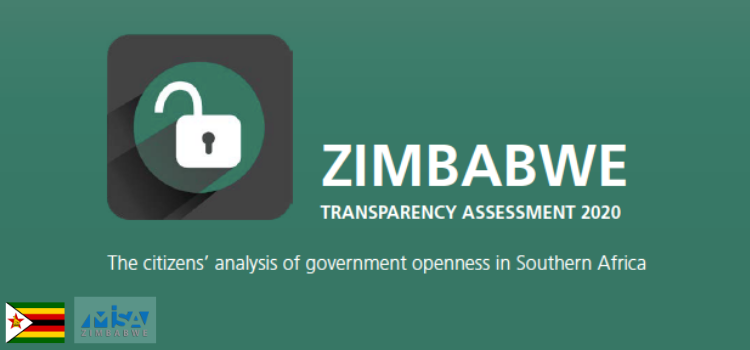MISA is proud to present its Transparency assessment report for the year 2020.
This year’s Transparency Assessment research comes at a time when the world at large is under lockdown restrictions due to the COVID-19 pandemic. Inevitably, this has had an effect on the right of access to information in the country.
At this time, it is especially crucial that all citizens in the country have easy access to information about the pandemic. It is against this backdrop that MISA Zimbabwe filed a court application compelling the Zimbabwean government to regularly provide information on COVID-19 in all of the country’s 16 official languages. In April 2020, the High Court ruled in favour of MISA Zimbabwe. As a result, the government (through the Ministry of Information) now provides daily updates on the pandemic.
However, access to information remains a challenge, especially during the lockdown as citizens have been restricted from physically visiting many public offices. They have therefore been forced to rely on information available through online platforms, and this is difficult for citizens who do not have access to the internet.
This situation has been exacerbated by the increasingly high costs of data. Econet Wireless, Zimbabwe’s largest mobile network operator, hiked its data and SMS tariffs by approximately 21% in March 2020. A daily bundle data service now costs US$11 for 40 MegaBytes (MB), while the highest package on offer, 1,200 MB, will now set their customers back US$150.
In August 2020, at the time of writing this report, Zimbabweans were experiencing socio-economic hardships with inflation pegged at more than 700% and unemployment at more than 90%. This poses the greatest challenge to the right of access to information.
The adverse economy has not spared media organisations which, with the added burden of COVID-19, are facing sustainability issues. Some organisations have reported dwindling advertising revenue. Although most media houses also publish online E-papers, access is restricted due to high data costs. This further undermines citizens’ rights of access to information as they prioritise catering for their basic needs over information.
These developments come at the time of gazetting the Cybersecurity and Data Protection Bill. Many people view this bill as being strong on mass surveillance of citizens as opposed to balancing the need for cybersecurity with the enjoyment of fundamental freedoms as provided in the country’s constitution, the African Declaration on Internet Rights and Freedoms, and African Charter on Human and Peoples’ Rights declaration on Freedom of Expression and Access to Information.
This year’s Transparency Assessment research was also conducted at a time when government officials made chilling threats against what they termed ‘social media abuse’, as well as intimidations that people, including journalists, could be arrested for freely expressing themselves on social media. Lieutenant-General Edzai Chimonyo, Zimbabwe’s National Army Commander, said the military would put social media under surveillance.
The military also issued threats against online media publications. This may lead to self-censorship and affect access to information.
The MISA Transparency Assessment report for 2020 is available for download here.









